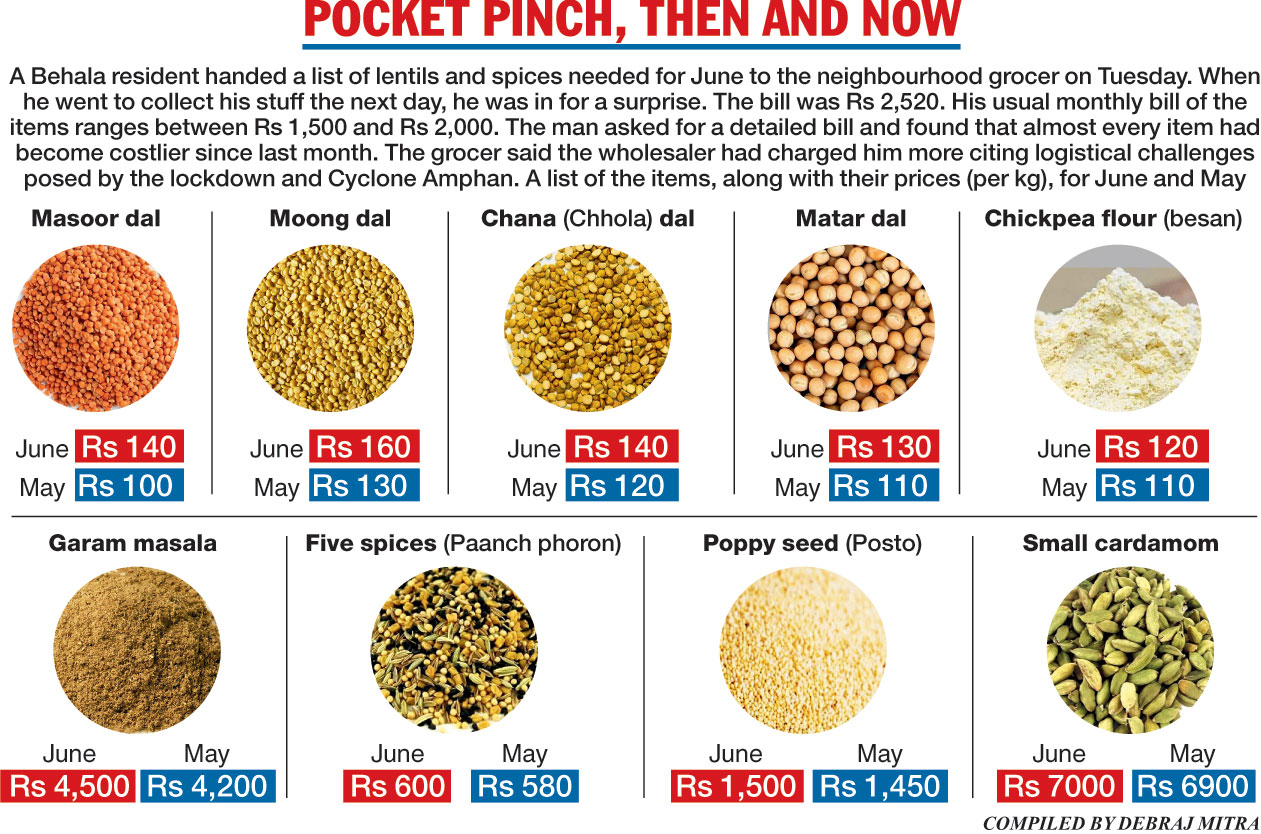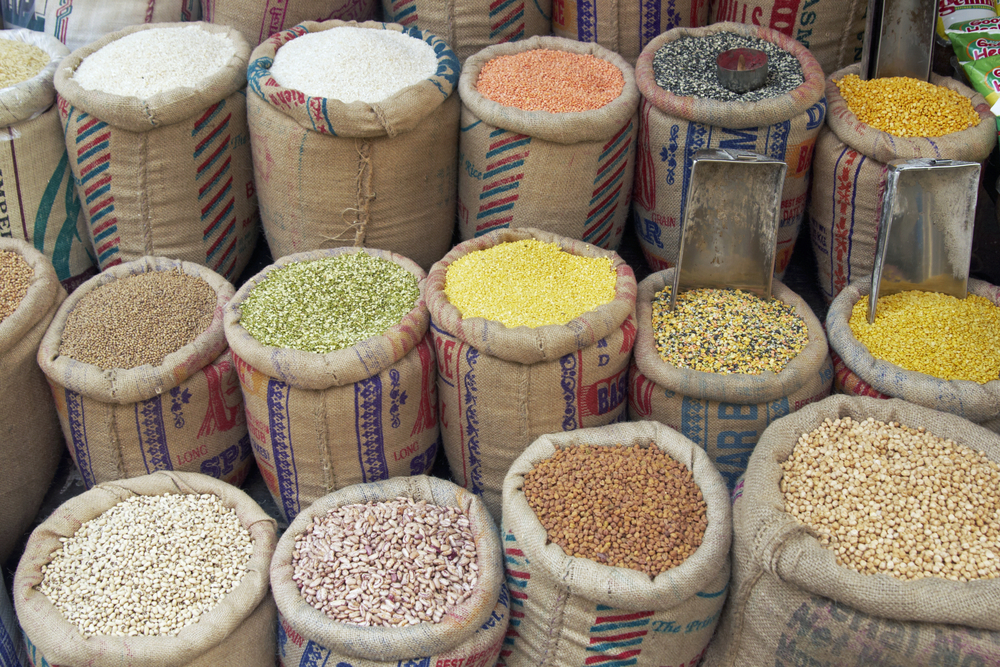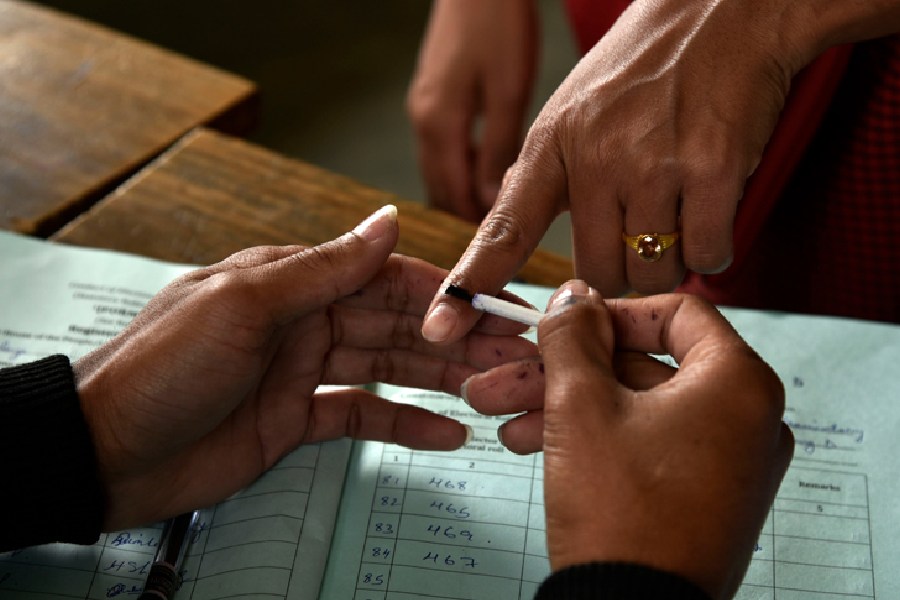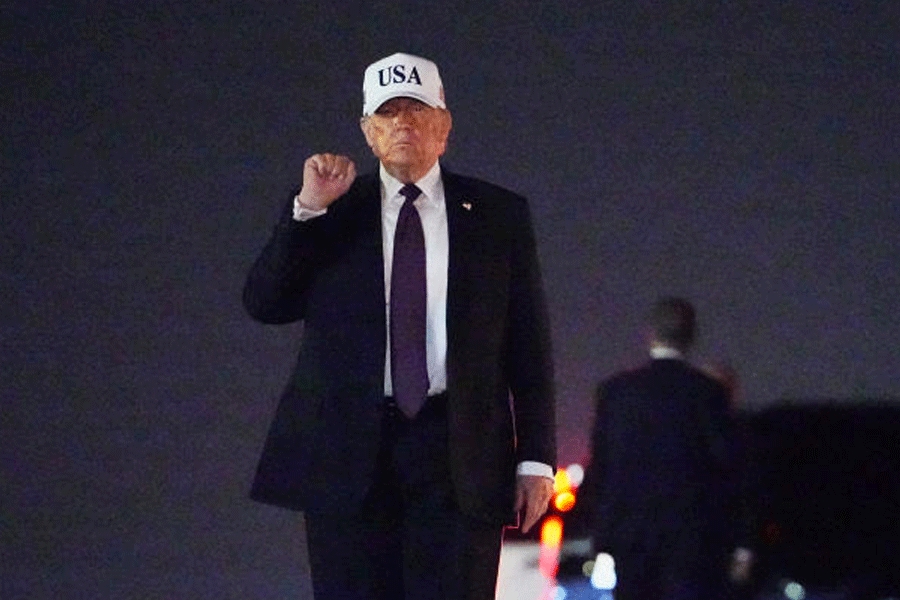Difficulty in procuring pulses from other states owing to transportation problems and poor harvest because of shortage of agricultural labourers — both results of the lockdown — have together led to a paucity of the items in Calcutta, resulting in a sharp price hike.
Bengal produces less than one-fourth of the pulses it consumes and has to depend on Madhya Pradesh, Rajasthan, Maharashtra and Uttar Pradesh, among other states, to meet the shortfall.
After the lockdown was imposed on March 25, many traders found it difficult to bring in vehicles carrying pulses and spices from various states. Rabindranath Koley, a member of the state government-appointed task force that monitors prices in various markets, said the traders told them that though the Union government had said that there would be no restrictions on the movement of vehicles carrying essential commodities during the lockdown, the reality was different.
“There was no problem if the truck carrying pulses were only moving between the originating state and our state. But when the truck had to pass through one or two other states, the authorities were often not allowing their movement,” said Koley. “The traders told us about this when we were probing the rise in the prices of pulses.”
The result is a 20 to 40 per cent hike in prices of pulses in most places.
“I bought masoor dal for Rs 100 a kilo in May. This month it is Rs 140 a kilo. Moong dal was selling at Rs 130 a kilo in May. The price has shot up to Rs 160 a kilo in June,” said a Behala resident, who buys the entire month’s pulses and spices together at the beginning of the month.

Debayan Basu, a resident of Maniktala, talked about a similar experience. “I have noticed that the prices of almost all pulses and spices have gone up,” he said.
Agricultural scientists said Bengal had to depend on other states for pulses and spices. “The demand for pulses in Bengal is 17-18 lakh tonnes a year and the state can produce only about 4 lakh tonnes a year, which is less than one-fourth of the demand. Naturally, transportation hazards during the lockdown disrupted the supply chain,” said Rajib Nath, a professor of agronomy at Bidhan Chandra Krishi Viswavidyalaya in Nadia.
The spike did not happen uniformly across the city. In some places, it happened a few weeks back and in some other pockets, the effect is being felt now. At some places, the prices shot up within a couple of weeks of the start of the lockdown.
Traders said there were multiple reasons for the hike taking effect at different times across the city. “Every wholesaler or retailer has some stock. It took some time to clear the old stock. The local produce filled in the void in many places. But as time passed, the effect of the supply shortage from other states was felt,” said a trader.
Nath said the prices were unlikely to go down any time soon. The Union government, he said, is yet to assess the effect of the lockdown on farm produce, something he said would be huge.
Shortage of labour also had an impact on the prices. “The government had said the movement restrictions would not apply on essential commodities, but there was no plan to allow movement of people working in agricultural fields. In many places, farm labourers could not work in the fields, resulting in poor harvesting in states that grow pulses. We are feeling the pinch now,” he said.
Koley said the task force would report the reasons for the price rise to the state government when it would next meet its officials. The task force and state government officials would meet twice a month but no meeting has held since the lockdown was imposed on March 25, Koley said.











